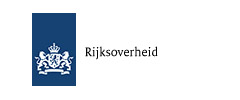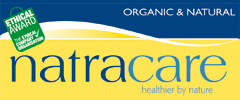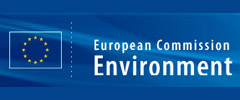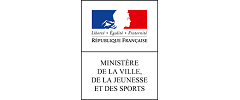Promotion of green technologies in Uganda
In cooperation with our local partner organization ARUWE, WECF implements a project in Mulagi Sub-county (Uganda) to promote sustainable technologies for renewable energy
03.05.2016 | WECF Project
| Countries: | Uganda |
| Donors: | Erbacher Stiftung |
| Partners: | ARUWE |
| Issues: | Sustainable Energy, Health, Water, Climate |
| Duration: | 05/2016 - 04/2017 |

Background:
Communities in Kyankwanzi district rely completely on wood as a source of fuel. As a result, forests have been depleted, conflicts relating to trespass on woodlots escalated and children's performance in school declined due to irregular school attendance and late coming resulting from collecting water and wood during school time. In addition, women who bear the primary responsibility of preparing meals spend long periods of time looking for wood and water depriving them of the time to participate in other economically productive activities. Furthermore, a majority of the women are widowed, elderly and are caring for an average of 8 orphans each and have very little or no support from relatives and friends. Access to safe water is also a challenge as families walk up to 2 kilometers in search for clean and safe water for home use.
The goal of the project therefore is to improve the livelihoods of rural communities especially vulnerable women households through promotion of renewable energy, production of organic fertiliser and access to safe wate.
The project builds on the recently concluded project that was already funded by Erbacher Stiftung where five bamboo biogas plants and five rain water harvesting tanks were constructed in 10 households in Mulagi Sub County, Kyankwanzi district. Following the completion of the project, over 53 community members expressed interest in adopting the technologies to improve their livelihoods. However, most of these community members are widowed and are caring for an average of 8 orphans. They do not have sufficient funds to support construction of the facilities and while majority have small scale village businesses, they do not generate enough income for educating their children and taking care of their health needs among others. The community is purely rural and has no financial service providers apart from ARUWE's micro-credit programs. The banks are located in big towns and do not provide opportunities for this segment of the population. In addition, community members do not have collateral.
While its important for ARUWE to scale-up the green energy utilization, the process needs to be sustainable and also to cover a big number of community members. ARUWE proposes to support the scale up through a revolving loan scheme. This was discussed during community meetings and the population was favorable of this kind of financing.
ARUWE will work with her micro-credit arm called community Fund. A criteria for selection will be adopted. ARUWE will target 20 households in one year. The project will go beyond the required project life time due to the revolving fund.
Project goals:
To scale out the bamboo biogas plant and rain water harvesting tanks among rural communities of Kyankwanzi district
To provide more time to children to attend school and women to participate in other economically viable activities instead of fetching fire wood and water;
To enhance capacity of local masons in construction of technologies
To increase agricultural productivity by using the bio slurry as organic fertiliser;
To prevent and diminish the environment pollution caused by burning of wood and to contribute to minimize the green house emission;
To provide a clean and affordable energy source for local people thus contribute to protect the forest resource and reduce the use of fossil fuels;
To support and establish socioeconomic groups and enterprises doing the green technology services and to contribute to improve the livehoods and quality of life of the rural farmers in Mulagi;
To reduce diseases associated with drinking unsafe water
Project activities:
1. Hold community sensitization meetings including scaling up processes and plans
2. Develop a selection criterion for the households which get a loan
3. Support establishment of a revolving loan scheme for biogas construction
4. Contract local masons and technicians
5. Construct biogas plants and water harvesting tanks
5. Follow-up after establishment of the facilities to monitor performance and solicit feedback from beneficiaries.
6. Provide reports to the funding partners as may be required from time to time.
Related News
Promotion of Healthy and Economical Agriculture and Livestock Farming
How to improve with simple means agricultural cultivation methods and local livestock farming and make them more profitable
08.08.2018
Towards the Implementation of the Sustainable Development Goals (SDGs) in Uganda
A report from the NGO Workshop on Green Technologies and Networking
21.11.2017
In 2016, WECF began a campaign to raise 4,000 in 30 days to install biogas toilet systems for deprived families in Uganda
Not only did WECF reach their goal of 15 toilets, but were able to raise more than 4,600 to install 17 toilets
24.02.2017
November 19, World Toilet Day
New ecosan toilet relief to girls attending Busi Parents School in Uganda
18.11.2016
Implementing SDG 5, 6 and 7 in Rural Uganda
Examples for gender-sensitive and sustainable WASH and energy systems and its implementation
12.07.2016
WECF participated at WASH symposium in Uganda
From June 20th-23rd, a WASH symposium was held in Kampala, Uganda. WECF participated in cooperation with our local partner organization ARUWE and we presented our water, sanitation and energy projects in Uganda.
23.06.2016
We've made it - overwhelming success of our crowdfunding campaign!
In the last 4 weeks we run a crowdfunding campaign to collect 4.000 to finance 15 Biogas Toilets for deprived families in Uganda. Thanks to your great support we can now build even more!
22.06.2016
Case studies from the EWA project in Uganda
In Uganda, WECF works with local partner organisations to introduce gender sensitivity trainings and conservation agriculture. Two participants in the trainings share their views
29.02.2016
WECF Partner SWAGEN Wins 2015 ONE Africa Award
Each year, the ONE Africa Award celebrates and highlights innovation and progress made by African led civil society organisations
01.12.2015 | Carmen Chan
EWA Uganda: lessons on farming as a business
I did not know borrowing money affects the profits
14.10.2014 | WICF











































